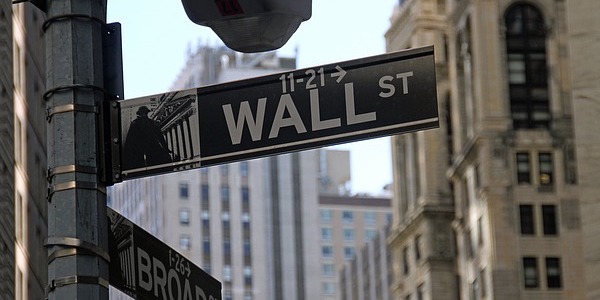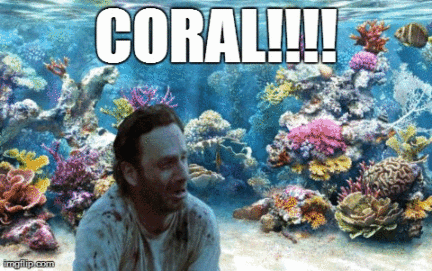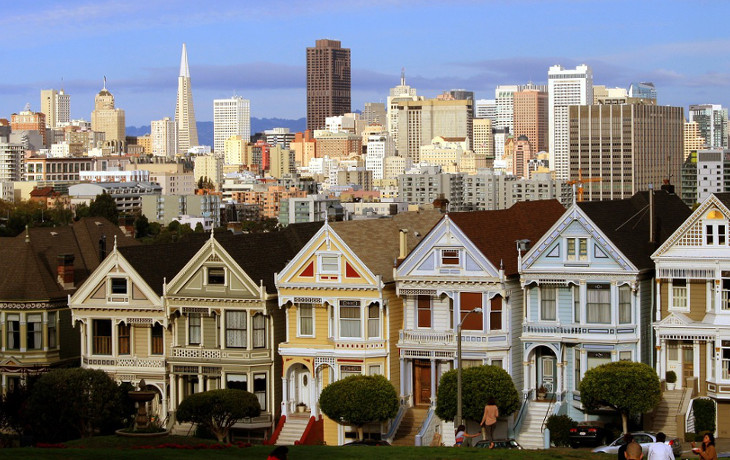I first came across The Prepared when I was exploring the idea of launching my own site dedicated to sane preparedness for normal people. Here was exactly the site that I had been wanting to dedicate the next few years of my life to, and it had already been in existence for a year and had begun to foster a wonderful community dedicated to individual and collective resilience.
I reached out to John Ramey, and after getting to know him and the mission, I’m thrilled to be joining The Prepared as Deputy Editor. Check out my first article on the best survival knives.
My professional background is primarily in online media: I’m one of the founders of Ars Technica (now part of Conde Nast), a former WIRED editor, a Contributing Editor to TheFirearmblog.com, and Founding Editor of AllOutdoor.com. I’ve written on technology, gun policy, and general outdoors issues for a variety of national and local publications both in print and online.
What follows is the story of how I got into prepping a few years back and why I’m passionate about it now. I look forward to learning and growing with all of you in the years to come.
In the summer of 2008, I had just sold my company and my wife was pregnant with our first child. We packed up a U-Haul and headed west from Chicago to San Francisco, starting a new life and a family in the heart of the booming Bay Area tech scene.
As we camped out in a short-term summer sublet and looked for a house to settle down in, we talked to other young families to get a feel for the city. It was in the course of those discussions about things like “walkability” and access to public transit that we became aware of the one fear (besides money) tucked away deep in the mind of every San Franciscan: The Big One. The Bay Area is overdue for a massive earthquake, and everyone who lives there is gambling that they’ll either be gone before it hits or they’ll somehow be ok when it does.
There I was, sitting in a leather chair in the downtown offices of a Swiss bank, and a greying banker in a suit had just told me that the world might end this week.
Thus “liquefaction” was a new term we added to our house-hunting vocabulary, and we acquainted ourselves with the many small precautions Bay Area residents take as a routine matter — keeping shoes under the bed so you won’t have to step on glass if a quake strikes at night; storing enough food and clean water for a few days without power; positioning beds and cribs away from objects that could potentially fly from walls and shelves; and so on.
The words “prepping” and “survival” never came up in these earthquake-related conversations with other San Francisco residents; there were just things you did if you lived in the city and had some sense.
The Great Financial Crisis, when everything almost stopped
I didn’t actually become a “prepper” until the following fall, after the collapse of Lehman Brothers sent the world economy into a tailspin. The short-term credit markets froze up, and there was chatter that the large, established New York media company that I now worked for might soon have problems meeting payroll if congress didn’t act.
The last week of September 2008, I found myself back in Chicago on a business trip. After the sale of my company was reported in the press, I had been contacted by the private wealth management teams at a handful of large banks, and since Credit Suisse was among them I decided to stop by their downtown Chicago office to meet the team.

As I sat in a conference room on one of upper floors of the bank’s stunningly appointed building, I asked the senior banker on their wealth management team if he thought the big bank bailout bill — the Troubled Asset Relief Program (TARP) — being debated by congress that week would pass.
“Of course it’ll pass,” he told me.
I asked him how he could be so confident, and he responded, “because if it doesn’t pass, then everything stops.”
After seeing the puzzled look on my face, he elaborated without a hint of exaggeration. “Why would you go to work if you didn’t get paid? The credit markets are frozen, and most major companies won’t be able to meet payroll in a few days if this doesn’t pass. The whole country will completely shut down.”
I pondered this for a moment, and recalled the campfire talk I’d heard at my own company about the payroll situation. It was news to me that this same threat of missed payrolls loomed across the entire economy, but it made sense given what I had learned about the short-term credit markets from obsessively reading finance blogs for most of the month.
I asked the banker, with a nervous, joking-but-not-really laugh, “so when I leave this meeting, should I call my wife and tell her to get a few thousand in cash out of the bank, just in case?”
He turned to his younger partner for a moment and they shared a quiet look, then he turned back to me and said something I’ll never forget:
“Yes, that would be a good idea.”
I felt like I had been edging up to the looking glass for the past fifteen minutes, and when he said that I finally stepped straight through. There I was, sitting in a leather chair in the downtown offices of a Swiss bank — not in some revivalist church service, or around a fire with “that guy” in the deer camp who wants to talk doom and gloom, but in the stone and glass halls of the modern establishment — and a greying banker in a suit had just told me that the world might end this week.
That was the precise moment when I set out on the path from being just another San Franciscan with some extra food and water on-hand to something I would later come to recognize as “a prepper.”
Getting back to my roots
When I first started thinking about actively preparing for whatever life might throw my way, I was only very dimly and peripherally aware of “prepping” or even “survivalism” as a subculture that one could get involved in.
I had grown up in south Louisiana, and hurricane preparation was something we learned in school. I was a lifelong hunter, and also a Life Scout, so I was comfortable in the outdoors and had the Scout motto — “be prepared” — instilled in me from a young age. My grandparents had stockpiled food in the 70’s in preparation for a communist invasion, and the topic of “the end-times” was taken seriously at our church.
I increasingly see discussions about systemic collapse from public intellectuals and in outlets I would never have imagined would entertain such talk.
In all, what most people nowadays would identify as “prepping” was deep in the DNA of myself and my community; some folks took their preparations further than others, but it was something most of us did to one degree or another. Preparing for a localized disaster or even a complete collapse of society wasn’t a separate activity with its own culture and language, or really anything we had a name for. It was just … normal.
Given my background, my initial approach to preparing for a collapse was not to go online and “join a community” or to Google for some doomsday shopping list, but to go back to doing what I already knew how to do but had neglected in my years of living in cities and going to college. I thought carefully about the basics like water, food, home defense, and evacuation routes. I considered the amount of money and space I could devote to supplies. Most importantly, I began the long process of incrementally turning myself into someone who’s prepared for an ever-increasing spectrum of catastrophically bad scenarios.
At some point in the course of my quiet catastrophe preparation I encountered the online “prepper” scene, and while I didn’t join it immediately I began lurking on prepping forums and blogs. When I got the opportunity in 2012 to become a part-time editor and advisor for Second Media, the owner of a number of popular survival- and firearm-related blogs and communities (such as SurvivalistBoards.com), I gladly took it and got more openly involved in “prepping.”
From “fad” to way of life
I have to admit that when I started AllOutdoor.com in 2013 as a side project, I thought that the surging popular interest prepping and survivalism was a passing fad. There had been a previous wave of interest in these topics in the 70’s, and my estimation as an editor was that one of two things would happen within the next five years: either everyone would get bored with survivalism and the “zombie apocalypse” craze and move on, or the world really would end. Either way, I though the trend had a limited shelf life, so we began covering survival-related topics as a way to take advantage of the fad for traffic purposes.

And now, five years later, it turns out much of what I originally saw online was a fad.
But what has taken the fad’s place is a much broader, deeper awareness of the fragility and finitude of the institutions that collectively make up our “civilization.” Americans have moved on from zombies and “doomsday preppers,” and have begun to seriously contemplate the very real possibility of a “sudden stop” in a way that they haven’t since the “duck and cover” days at the height of the Cold War.
Mainstream interest in preparedness seems to have gotten more intense, particularly in the last year or two, and I increasingly see discussions about systemic collapse from public intellectuals and in outlets I would never have imagined would entertain such talk. Interest in preparing for very serious, regional, or even global catastrophe has moved on from the “Art Bell Coast to Coast” crowd and is now entering the zeitgeist of American society.
Why I’m Joining The Prepared
I don’t think that a major grid-down event will necessarily lead to the permanent end of civilization as it’s often depicted in Hollywood post-apocalyptic movies and TV. I also don’t personally subscribe to the dark, militarist fantasies and political obsessions of the doomsday prepper crowd, nor am I invested in an end-of-the-world scenario to the point where I’ll actually be let down if catastrophe never strikes.
Rather, as I mentioned above, I approach preparedness from a place of humility, in recognition of the fragility of our modern world.
Modernity and capitalism have been very good to me, and for all its terrible flaws I am not one of those who longs for the present order to implode. I very much want my three young children to grow up in a world with healthcare and higher education, where they can pursue fulfilling lives and raise their own families without worrying about things like crop failure or lack of antibiotics, or even just how to survive in “the world’s wealthiest country” where the majority of citizens have less than $1,000.
I also know there are many other people out there like me, people who are concerned about what appear to be very real existential threats to our civilization, and who’d like to begin the process of preparing themselves and their families for the possibility that the social and physical infrastructure we all depend on will get worse in the years to come — not better.
So I’ve joined The Prepared to share what I’ve learned with all of the folks who are worried about the systems that sustain us and who want to take some common sense precautions that can protect themselves and their loved ones should those systems fail and leave them and their communities on their own.


You are reporting the comment """ by on